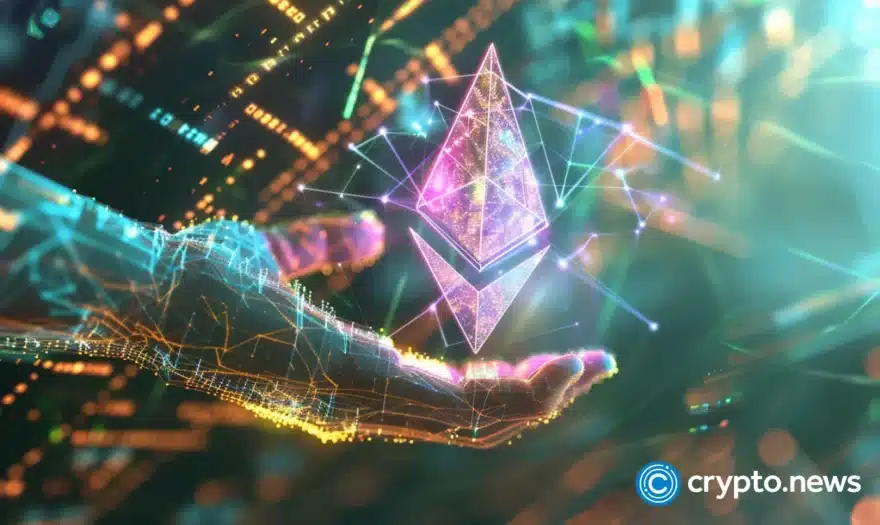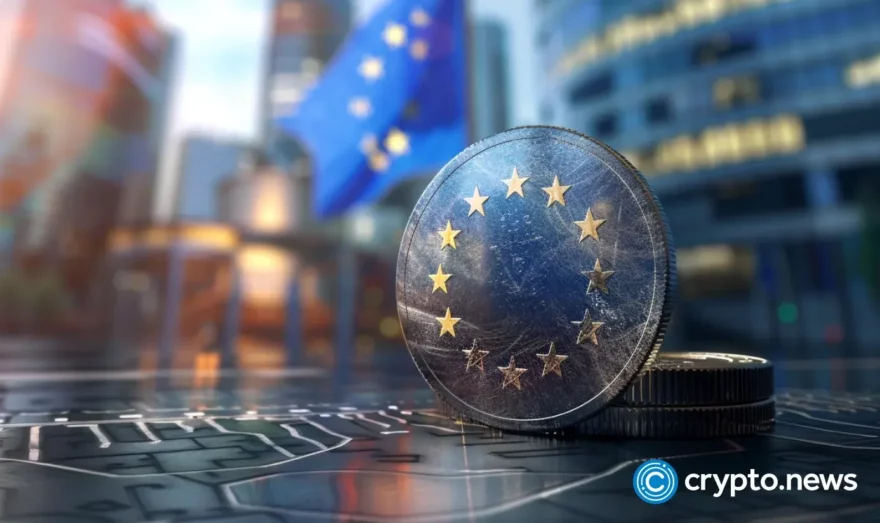The future of ownership belongs to asset tokenization | Opinion

Disclosure: The views and opinions expressed here belong solely to the author and do not represent the views and opinions of crypto.news’ editorial.
Have you thought of how tokenization is related to homeownership? Beyond a direct link between these two notions, tokenization reimagines the way we think about ownership. Owning a home is becoming a hereditary privilege. The gap between those with and without parental wealth is getting more obvious than ever, with one third of British first-time home buyers receiving help on a down payment or being completely financed by their parents.
The US is no exception to the generational hurdle—last year, the median age of American home buyers surged to 53 from 45 in 2021. And housing is just one piece of a wealth puzzle. So, what are the durable ways to make the notion of ownership more inclusive for generations to come?
In tandem with the establishment of a continuous, worldwide digital asset-agnostic trading, settlement, and asset servicing framework—often referred to as the “internet of value”—the tokenization of real world assets, or RWAs, will play a crucial role. Let’s see how the tokenization of assets can enhance a more diverse ownership landscape and what are the potential challenges ahead.

Security data tokenization solution | Source: IBM
Intangible assets—tangible value
Tokenizing real-world assets introduces a dynamic facet to ownership, enabling the division of ownership into smaller, accessible units. This concept encompasses all manner of investable assets, including equities and bonds. The practice of fractional ownership lowers the traditional barriers to entry, fostering a landscape where individuals, and younger generations in particular, can engage in smaller-size investment diversification.
Returning to our real estate illustration, through asset tokenization, you have the opportunity to invest in and possess a fraction of a house, as opposed to acquiring the entire property. Moreover, you can engage in this practice across multiple properties of varying magnitudes simultaneously, thereby achieving portfolio diversification.
Historically, certain valuable assets like real estate, rare artworks, or private equity were accessible only to high-net-worth individuals or institutions. Tokenization allows a broader range of people to invest in these assets. The allure of tokenization extends to its potential to heighten liquidity for traditionally illiquid assets. It also introduces novel avenues for financing—crowdfunding for real estate ventures or startups, enabling emerging entrepreneurs and visionaries to harness alternative models for capital mobilization. Sounds smooth as silk. Where is the catch, you may ask?
Bumps in the road
Although the prospect of democratization exists, the broad acceptance of tokenized RWAs continues to hinge on factors such as technological accessibility, internet connectivity, and fundamental comprehension of blockchain. Additionally, it requires the establishment of user-friendly services that handle risks and shield individuals from the intricacies of blockchain technology.
While tokenization improves access to, and, to some extent, liquidity for historically illiquid assets, e.g., real estate and private equity, there can still be a mismatch between market demand and supply. Those seeking to buy and those aiming to sell may not always align. Meanwhile, determining the value of tokenized RWAs is a challenging task on its own, especially for unique or aforementioned illiquid assets.
On the tech side, the fragmented nature of this asset type can lead to challenges in interoperability and standardization in settlement. Regulatory inconsistencies across various jurisdictions and countries don’t alleviate the process either. Clear and consistent legal frameworks are needed to ensure that tokenized assets comply with existing laws, protecting both investors and issuers, which, unfortunately, isn’t the case today.
Market participants take matters into their own hands
Luckily, market players recognize the challenges and take proactive measures to tackle them. Initiatives like the one presented by SWIFT and Chainlink, as well as a dozen banks and financial market infrastructures (FMIs) earlier this summer not only provide a platform for collaboration but also offer a valuable learning curve for addressing complex issues of blockchain interoperability.
Developing common token standards and protocols across different blockchain platforms likewise helps solve interoperability and standardization issues. The standards introduced by International Organization for Standardization, or ISO, and managed by the Digital Token Identifier Foundation, or DTIF, for instance, are regulator-approved unique identifiers for digital ledgers, tokens, and cryptocurrencies. The adoption of these standards allows tokenized assets to move seamlessly between different ecosystems, increasing access to a broader audience and democratizing a process.
We can also expect FMIs to play a critical role in bridging traditional and tokenized markets as they ensure neutral and fair access to liquidity locked on bank tokenization islands. More so, as FMIs and banks integrate these assets into their offering, they’re incentivized to provide user-friendly options (e.g., wallet abstraction solutions) to less tech-savvy individual customers and corporates. After all, not every individual or institution wants to deal directly with blockchains and tokenized assets. And user-friendly interfaces facilitate the understanding and adoption of the technology.
Asset tokenization is here to stay
As you can see, the industry of tokenized RWAs will likely continue to grow as a broader range of assets is being tokenized (e.g., commodities, infrastructure projects, intellectual property), and both institutional and retail investors become more comfortable with the concept.
Increased adoption will drive maturation in technology, regulations, and global market practices, offering progressively hybrid models where traditional financial instruments and tokenized assets are combined. This will allow a wider pool of investors to transition gradually into this new paradigm. Although this shift will probably unfold over a period of ten years or even longer, its impact on future generations will be revolutionary. The course has been set in motion and is irreversible.














